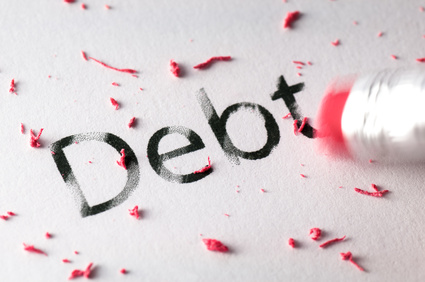Last Updated on Mar 5, 2020 by James W
Excessive debt will have a negative impact on your credit rating and present numerous complications for your financial future. Therefore, it’s crucial that you make it a priority to pay down your debt. While you’ll have no argument with the importance of paying off your debt, starting the process is the difficult part. With a few small changes, you can put a dent in your debt to the point where it actually feels good to reach your goals. With some planning and the three tips below you can drastically reduce debt and achieve financial freedom once again.
Create A Debt Repayment Snowball Plan
Make a list of all your debts, starting with the smallest balance and moving up to the account with the highest balance. Pay the minimum amount due on all your debt, but pay extra on the account with the smallest balance. Exercise this strategy, until that debt is paid off, and then divert the extra payments to the next account on the list. You’ll be encouraged to move forward as you pay off each account.
Set up automatic bill payments to simplify this process and pay your debtors without having to write a check or log in to an online account. It will ensure that your bills are paid on time to avoid late fees and other charges.
Combine Debts And Avoid Interest Rates
Paying debt on multiple credit cards and other accounts could get complicated, especially if you’re only making the minimum payments every month. Don’t fall into the minimum payment trap because you’ll spend a lifetime repaying your debt. Few consumers realize that the minimum payment mostly covers the interest, so the balance stays the same month after month. At that rate, it could take up to 15 years to pay off a debt of $3000. Your bank won’t mind, but you would have spent an obscene amount of money in interest to repay that loan.
Combine your debts wherever possible and you’ll not only have the convenience of making one bill payment but also avoid high interest charges. This strategy works best for credit cards where you can transfer balances from high interest cards to a lower interest card. If your credit is good, you can apply for a credit with a 0% introductory rate and transfer the balance. You can also search for lower rates on your mortgage and other payments. Compare rates at Kanetix or a similar site to see if you’re getting the best rate on your mortgage.
Save on Groceries
Food is most likely one of your home’s largest expense. Start saving money on food by stocking up on specific items when they’re on sale or build a stockpile so you won’t have to shop every month. Stock up on non-perishable goods like canned foods and cereal. You can also stock up on frozen foods like meats and vegetables. Filling up on foods when they’re on sale and reducing your visits to the grocery will lower your grocery bill by 25-45% a year. The savings can be used to pay off debt.
The sooner you start managing your debt, the sooner you’ll have it paid off. Start with one or two of these strategies and get ahead of your debt.
Author Bio:
Donald Ayers is a personal finance consultant. When he is not helping his clients, he enjoys sharing his insights and money saving tips by blogging.





